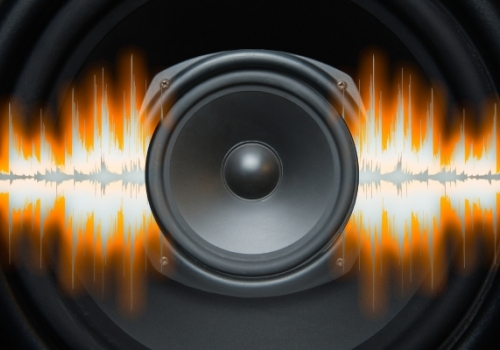Resetting the Bar on Quality Audio-Visual Experiences

In our previous article, we discussed the challenges superyachts face when trying to provide the best quality and choice for onboard entertainment systems. To briefly summarise: As well as providing a myriad of streaming media platforms, there is still a need for an onboard server playing the best available “lossless” content.
Following on, this article explores the worrying fact that we’re losing our appreciation of good quality audio and video altogether!
A generational shift
With most audio-visual experiences now based on lower quality streamed content, our appreciation levels are becoming completely lost. Younger content consumers today have largely only ever known compromised TV and streaming options as their “norm”. Many of us will be old enough to remember lossless optical discs as being standard, but such options are becoming increasingly scarce.
In the USA, electronics giant Best Buy recently confirmed it will stop selling physical media in 2024 so, as time moves on, the problem of accessing lossless content continues to grow.
The Illusion
Consider for a moment that an entertainment system is actually attempting an illusion. A perception of reality. A trick. Shouldn’t the trick therefore be as realistic as possible, or what’s the point? Would you want to go to a bad magic show?
There are actually several important and complex steps involved in this attempt at illusion. The first is the media itself, typically a recording of a real-life event. Here sound and/or light waves are captured and converted to an analogue or digital signal for recording or broadcast. We could talk at length about the other components required for our Illusion, but if the first part is compromised then the rest is too. Garbage in, garbage out.
Eventually a system’s display and speakers attempt to reproduce the original sound and light, which travel through a physical space before arriving at our eyes and ears.
Human factors and the palate
Eventually the reproduced light and sound are converted back to electrical signals by our senses before making their way to our brains. But the capability of everyone’s senses varies, as does the way our individual brains process (or ignore) information. So, audio-visual experiences can be extremely subjective.
When referring to a person’s “palate” we usually mean their sense of taste and appreciation level of food and drink. But we’re constantly training our brain with the information we feed it, even if we don’t realise. By consuming better food and wine, our appreciation or “palate” automatically improves. No expert knowledge is needed to do this.
This is also why appreciation of good audio-visual experiences is being lost. By feeding ourselves lower-quality content, recognition of the received patterns in our brains changes and we lose appreciation. So, the final component in the Illusion system is us, and we’re becoming compromised very quickly.
Rotten Tomatoes
Perhaps you’ve heard of the movie and TV show review service “Rotten Tomatoes”. Many believe the name comes from an old tradition of audiences throwing vegetables in disapproval of bad stage performances.
When it comes to AV experiences on board, a disappointed audience is exactly what we want to avoid, but with the constant striving for convenience and choice we must not forget to provide the best quality too.
Ask yourself this: Do you truly know what a tomato smells and tastes like? If you’ve ever had fresh home-grown tomatoes, you’ll know the smell and taste is incredible compared to the ones you buy in the supermarket – and if the latter is all you know, you probably have no idea how good tomatoes are supposed to taste! Similarly, It’s bad enough that we are forgetting what a good audio-visual experience should be, while a growing number of people have never had one at all!
Focusing on the user experience
If you’re still reading, presumably you understand how appreciation levels work and you also care. As AV/IT consultants, at Spectral Marine we’re passionate about this point.
We have regularly seen people focus too much on the superyacht system itself rather than the resulting audio-visual experience. We see new systems handed over when “on and working” with insufficient focus on the end result, which is rarely stipulated in build specifications or commissioning protocols.
In contrast, Spectral Marine focuses on end-user experiences. We are also working to raise awareness and appreciation levels.
Our training school SEACertify delivers a new course called Audio@SEA, which focuses specifically on audio experiences on board superyachts. Students enter the classroom to an engaging audio experience, and frequently visit the listening chair during the course to better understand and appreciate the goals. Taught by renowned audio expert and Spectral Marine director Roland Higham, the course also includes common superyacht audio system troubleshooting scenarios.
All consultancy and training enquiries can be directed to consultancy@spectralmarine.com.
Scott Molloy is an ex superyacht AV/IT officer with 19 years’ experience in the industry, and he is now managing director of AV/IT consultants Spectral Marine and training provider SEACertify.


Post your comment
You cannot post comments until you have logged in.
Login to post a commentComments
No one has commented on this page yet.
RSS feed for comments on this page | RSS feed for all comments